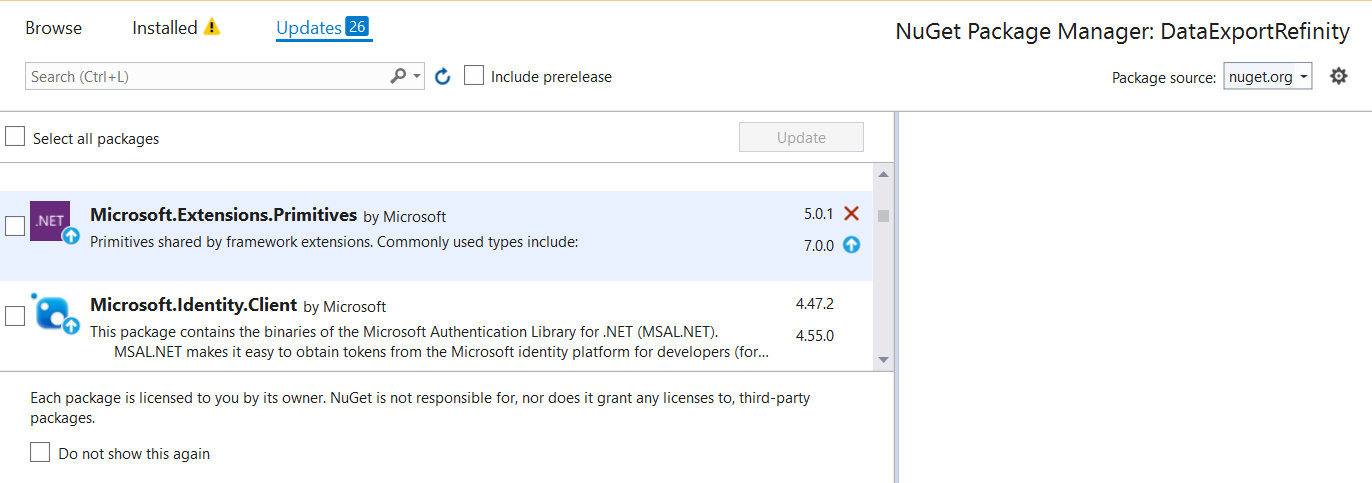After update to the new package Microsoft.EntityFrameworkCore.SqlServer 1.1.2 I got error when try to create DBContext:
System.IO.FileLoadException occurred HResult=0x80131040
Message=Could not load file or assembly 'Microsoft.Extensions.DependencyInjection.Abstractions, Version=1.1.0.0, Culture=neutral, PublicKeyToken=adb9793829ddae60' or one of its dependencies. The located assembly's manifest definition does not match the assembly reference. (Exception from HRESULT: 0x80131040) Source=Microsoft.EntityFrameworkCore StackTrace: at Microsoft.EntityFrameworkCore.DbContext..ctor(DbContextOptions options) at Services.Infrastructure.Data.SqlServerDbContext..ctor(DatabaseOptions databaseOptions) in C:\src\backend\Packages\Services.Infrastructure\Data\SqlServerDbContext.cs:line 16 at Translations.Api.Data.TranslationsDbContext..ctor(DatabaseOptions databaseOptions) in C:\src\backend\Modules\Translations\Translations.Api\Data\TranslationsDbContext.cs:line 16
My base DbContext
public class SqlServerDbContext : DbContext
{
private readonly DatabaseOptions _databaseOptions;
protected SqlServerDbContext(DatabaseOptions databaseOptions)
{
if (string.IsNullOrEmpty(databaseOptions.ConnectionString))
throw new Exception("Database connection string is missed.");
_databaseOptions = databaseOptions;
}
protected override void OnConfiguring(DbContextOptionsBuilder optionsBuilder)
{
optionsBuilder.UseSqlServer(_databaseOptions.ConnectionString);
}
}
Database options that I use
public class DatabaseOptions
{
public string ConnectionString { get; set; }
}
Place where I create instance of context
var dbOptions = new DatabaseOptions { ConnectionString = _connectionString };
DbContext = (TContext) Activator.CreateInstance(typeof(TContext), dbOptions);
// where TContext is derived class from SqlServerDbContext
All my packages are updated. Visual Studio 2017 15.2 (26430.6). Before upgrade to 1.1.2 everything works fine. Please help to solve the problem.



